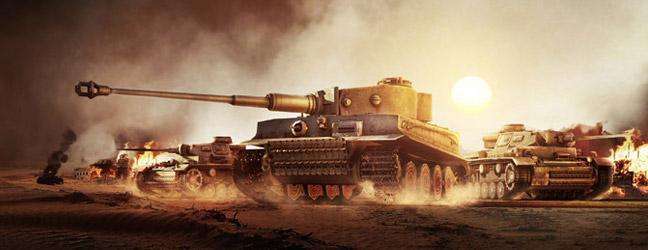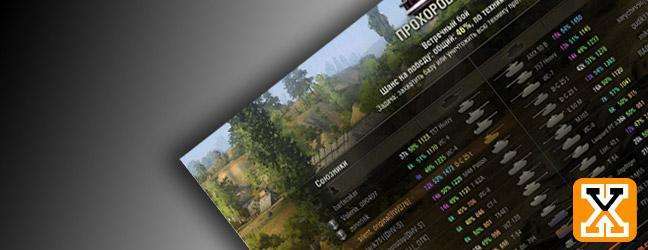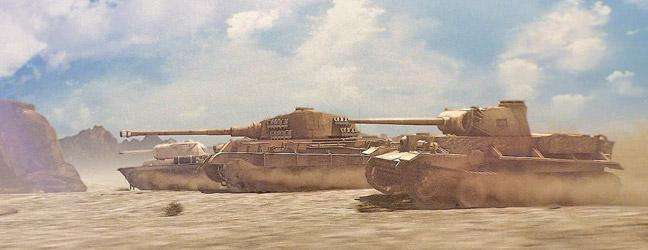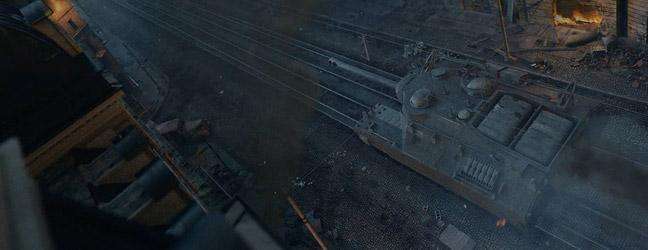Военно-историческая фотохроника
Дата: 26.07.2018 11:11:42
 SerejKa_HT (26 Июл 2018 - 10:04) писал: The original caption reads: “The Italian collapse in Venezia. The
heedless flight of the Italians to the Tagliamento. Captured heavy
and gigantic cannon in a village behind Udine. November 1917”.
Pictured is an Obice da 305/17, a huge Italian howitzer, one of
fewer than 50 produced during the war.
SerejKa_HT (26 Июл 2018 - 10:04) писал: The original caption reads: “The Italian collapse in Venezia. The
heedless flight of the Italians to the Tagliamento. Captured heavy
and gigantic cannon in a village behind Udine. November 1917”.
Pictured is an Obice da 305/17, a huge Italian howitzer, one of
fewer than 50 produced during the war.  The Holt
gas-electric tank, the first American tank, in 1917. The Holt did
not get beyond the prototype stage, proving too heavy and
inefficient in design.
The Holt
gas-electric tank, the first American tank, in 1917. The Holt did
not get beyond the prototype stage, proving too heavy and
inefficient in design.  Derelict tanks lie strewn
about a chaotic battlefield at Clapham Junction, Ypres, Belgium,
ca. 1918.
Derelict tanks lie strewn
about a chaotic battlefield at Clapham Junction, Ypres, Belgium,
ca. 1918.  Western front, loading a German
A7V tank onto a railroad flat car. Fewer than a hundred A7Vs were
ever produced, the only tanks manufactured by Germany that they
used in the war. German troops did manage to capture and make use
of a number of allied tanks, however.
Western front, loading a German
A7V tank onto a railroad flat car. Fewer than a hundred A7Vs were
ever produced, the only tanks manufactured by Germany that they
used in the war. German troops did manage to capture and make use
of a number of allied tanks, however.  British
Medium Mark A Whippet tanks advance past the body of a dead
soldier, moving to an attack along a road near Achiet-le-Petit,
France, on August 22, 1918. The Whippets were faster and lighter
than previously deployed British heavy tanks.
British
Medium Mark A Whippet tanks advance past the body of a dead
soldier, moving to an attack along a road near Achiet-le-Petit,
France, on August 22, 1918. The Whippets were faster and lighter
than previously deployed British heavy tanks.  Allied advance on Bapaume, France, ca. 1917. Two tanks are moving
towards the left, followed by troops. In the foreground some
soldiers are sitting and standing at the roadside. One of them
appears to be having a drink. Beside the men is what appears to be
a rough wooden cross with an Australian or New Zealand service hat
on it. In the background other troops are advancing, moving field
guns and mortars.
Allied advance on Bapaume, France, ca. 1917. Two tanks are moving
towards the left, followed by troops. In the foreground some
soldiers are sitting and standing at the roadside. One of them
appears to be having a drink. Beside the men is what appears to be
a rough wooden cross with an Australian or New Zealand service hat
on it. In the background other troops are advancing, moving field
guns and mortars.  A German communications squad
behind the Western front, setting up using a tandem bicycle power
generator to power a light radio station in September of 1917.
A German communications squad
behind the Western front, setting up using a tandem bicycle power
generator to power a light radio station in September of 1917.
 The interior of an armored train
car, Chaplino, Dnipropetrovs’ka oblast, Ukraine, in the spring of
1918. At least nine heavy machine guns are visible, as well as many
ammunition cases.
The interior of an armored train
car, Chaplino, Dnipropetrovs’ka oblast, Ukraine, in the spring of
1918. At least nine heavy machine guns are visible, as well as many
ammunition cases.  An Austrian armored train in
Galicia, ca, 1915. Adding armor to trains dates back to the
American Civil War, used as a way to safely move weapons and
personnel through hostile territory.
An Austrian armored train in
Galicia, ca, 1915. Adding armor to trains dates back to the
American Civil War, used as a way to safely move weapons and
personnel through hostile territory.  American
troops using a newly-developed acoustic locator, mounted on a
wheeled platform. The large horns amplified distant sounds,
monitored through headphones worn by a crew member, who could
direct the platform to move and pinpoint distant enemy aircraft.
Development of passive acoustic location accelerated during World
War I, later surpassed by the development of radar in the 1940s.
American
troops using a newly-developed acoustic locator, mounted on a
wheeled platform. The large horns amplified distant sounds,
monitored through headphones worn by a crew member, who could
direct the platform to move and pinpoint distant enemy aircraft.
Development of passive acoustic location accelerated during World
War I, later surpassed by the development of radar in the 1940s.

_I_F_: The Holt gas-electric tank, the first American tank, in 1917. The
Holt did not get beyond the prototype stage, proving too heavy and
inefficient in design.  Derelict tanks lie strewn
about a chaotic battlefield at Clapham Junction, Ypres, Belgium,
ca. 1918.
Derelict tanks lie strewn
about a chaotic battlefield at Clapham Junction, Ypres, Belgium,
ca. 1918.  Western front, loading a German
A7V tank onto a railroad flat car. Fewer than a hundred A7Vs were
ever produced, the only tanks manufactured by Germany that they
used in the war. German troops did manage to capture and make use
of a number of allied tanks, however.
Western front, loading a German
A7V tank onto a railroad flat car. Fewer than a hundred A7Vs were
ever produced, the only tanks manufactured by Germany that they
used in the war. German troops did manage to capture and make use
of a number of allied tanks, however.  British
Medium Mark A Whippet tanks advance past the body of a dead
soldier, moving to an attack along a road near Achiet-le-Petit,
France, on August 22, 1918. The Whippets were faster and lighter
than previously deployed British heavy tanks.
British
Medium Mark A Whippet tanks advance past the body of a dead
soldier, moving to an attack along a road near Achiet-le-Petit,
France, on August 22, 1918. The Whippets were faster and lighter
than previously deployed British heavy tanks.  Allied advance on Bapaume, France, ca. 1917. Two tanks are moving
towards the left, followed by troops. In the foreground some
soldiers are sitting and standing at the roadside. One of them
appears to be having a drink. Beside the men is what appears to be
a rough wooden cross with an Australian or New Zealand service hat
on it. In the background other troops are advancing, moving field
guns and mortars.
Allied advance on Bapaume, France, ca. 1917. Two tanks are moving
towards the left, followed by troops. In the foreground some
soldiers are sitting and standing at the roadside. One of them
appears to be having a drink. Beside the men is what appears to be
a rough wooden cross with an Australian or New Zealand service hat
on it. In the background other troops are advancing, moving field
guns and mortars.  A German communications squad
behind the Western front, setting up using a tandem bicycle power
generator to power a light radio station in September of 1917.
A German communications squad
behind the Western front, setting up using a tandem bicycle power
generator to power a light radio station in September of 1917.
 The interior of an armored train
car, Chaplino, Dnipropetrovs’ka oblast, Ukraine, in the spring of
1918. At least nine heavy machine guns are visible, as well as many
ammunition cases.
The interior of an armored train
car, Chaplino, Dnipropetrovs’ka oblast, Ukraine, in the spring of
1918. At least nine heavy machine guns are visible, as well as many
ammunition cases.  An Austrian armored train in
Galicia, ca, 1915. Adding armor to trains dates back to the
American Civil War, used as a way to safely move weapons and
personnel through hostile territory.
An Austrian armored train in
Galicia, ca, 1915. Adding armor to trains dates back to the
American Civil War, used as a way to safely move weapons and
personnel through hostile territory.  American
troops using a newly-developed acoustic locator, mounted on a
wheeled platform. The large horns amplified distant sounds,
monitored through headphones worn by a crew member, who could
direct the platform to move and pinpoint distant enemy aircraft.
Development of passive acoustic location accelerated during World
War I, later surpassed by the development of radar in the 1940s.
American
troops using a newly-developed acoustic locator, mounted on a
wheeled platform. The large horns amplified distant sounds,
monitored through headphones worn by a crew member, who could
direct the platform to move and pinpoint distant enemy aircraft.
Development of passive acoustic location accelerated during World
War I, later surpassed by the development of radar in the 1940s.
 Друже, не поленитесь,
пожалуйста, впредь переводить. Официальный язык форума - русский,
согласно Правилам.
Друже, не поленитесь,
пожалуйста, впредь переводить. Официальный язык форума - русский,
согласно Правилам.
 Derelict tanks lie strewn
about a chaotic battlefield at Clapham Junction, Ypres, Belgium,
ca. 1918.
Derelict tanks lie strewn
about a chaotic battlefield at Clapham Junction, Ypres, Belgium,
ca. 1918.  Western front, loading a German
A7V tank onto a railroad flat car. Fewer than a hundred A7Vs were
ever produced, the only tanks manufactured by Germany that they
used in the war. German troops did manage to capture and make use
of a number of allied tanks, however.
Western front, loading a German
A7V tank onto a railroad flat car. Fewer than a hundred A7Vs were
ever produced, the only tanks manufactured by Germany that they
used in the war. German troops did manage to capture and make use
of a number of allied tanks, however.  British
Medium Mark A Whippet tanks advance past the body of a dead
soldier, moving to an attack along a road near Achiet-le-Petit,
France, on August 22, 1918. The Whippets were faster and lighter
than previously deployed British heavy tanks.
British
Medium Mark A Whippet tanks advance past the body of a dead
soldier, moving to an attack along a road near Achiet-le-Petit,
France, on August 22, 1918. The Whippets were faster and lighter
than previously deployed British heavy tanks.  Allied advance on Bapaume, France, ca. 1917. Two tanks are moving
towards the left, followed by troops. In the foreground some
soldiers are sitting and standing at the roadside. One of them
appears to be having a drink. Beside the men is what appears to be
a rough wooden cross with an Australian or New Zealand service hat
on it. In the background other troops are advancing, moving field
guns and mortars.
Allied advance on Bapaume, France, ca. 1917. Two tanks are moving
towards the left, followed by troops. In the foreground some
soldiers are sitting and standing at the roadside. One of them
appears to be having a drink. Beside the men is what appears to be
a rough wooden cross with an Australian or New Zealand service hat
on it. In the background other troops are advancing, moving field
guns and mortars.  A German communications squad
behind the Western front, setting up using a tandem bicycle power
generator to power a light radio station in September of 1917.
A German communications squad
behind the Western front, setting up using a tandem bicycle power
generator to power a light radio station in September of 1917.
 The interior of an armored train
car, Chaplino, Dnipropetrovs’ka oblast, Ukraine, in the spring of
1918. At least nine heavy machine guns are visible, as well as many
ammunition cases.
The interior of an armored train
car, Chaplino, Dnipropetrovs’ka oblast, Ukraine, in the spring of
1918. At least nine heavy machine guns are visible, as well as many
ammunition cases.  An Austrian armored train in
Galicia, ca, 1915. Adding armor to trains dates back to the
American Civil War, used as a way to safely move weapons and
personnel through hostile territory.
An Austrian armored train in
Galicia, ca, 1915. Adding armor to trains dates back to the
American Civil War, used as a way to safely move weapons and
personnel through hostile territory.  American
troops using a newly-developed acoustic locator, mounted on a
wheeled platform. The large horns amplified distant sounds,
monitored through headphones worn by a crew member, who could
direct the platform to move and pinpoint distant enemy aircraft.
Development of passive acoustic location accelerated during World
War I, later surpassed by the development of radar in the 1940s.
American
troops using a newly-developed acoustic locator, mounted on a
wheeled platform. The large horns amplified distant sounds,
monitored through headphones worn by a crew member, who could
direct the platform to move and pinpoint distant enemy aircraft.
Development of passive acoustic location accelerated during World
War I, later surpassed by the development of radar in the 1940s.
 Друже, не поленитесь,
пожалуйста, впредь переводить. Официальный язык форума - русский,
согласно Правилам.
Друже, не поленитесь,
пожалуйста, впредь переводить. Официальный язык форума - русский,
согласно Правилам. Военно-историческая фотохроника














